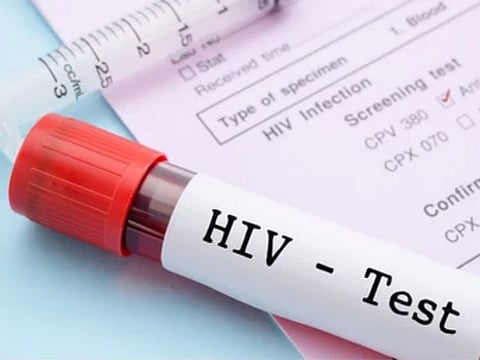Pakistan faces record rise in HIV cases: Urgent action needed
Experts warn lack of screening and unsafe practices could trigger a silent epidemic

Experts warn lack of screening, poor awareness, and unsafe practices could trigger a silent epidemic
Dubai: Pakistan is facing its highest number of newly detected HIV cases in a single year, with more than 10,000 people confirmed positive in the first nine months of 2025, officials revealed Wednesday.
Health authorities warn that the total could exceed 14,000 by year’s end, surpassing last year’s 13,001 cases. Officials said a significant rise in detections came from incidental screenings during medical procedures, emergency treatments, and visa requirements, making 2025 the fastest year of HIV case escalation in the country’s history.
“Most new cases are discovered only when individuals undergo mandatory tests before travel or surgery,” said a federal health ministry official. Pakistan still lacks legislation requiring HIV screening for high-risk groups, deported migrants, or sex workers, leaving thousands undiagnosed, untreated, and unknowingly transmitting the virus, the News reported.
Modelling by UNAIDS, WHO, and UNICEF suggests as many as 40,000 people could contract HIV in Pakistan by the end of 2025, though the majority may remain undiagnosed due to gaps in screening and surveillance systems.
Recent outbreaks in cities including Mirpurkhas and Taunsa, where children contracted HIV through syringe reuse and poor infection control, show the virus is spreading beyond traditional high-risk populations to families, including mothers and infants.
Experts warn
Experts warn the steepest increase is among men who have sex with men, with drug-assisted sexual activity, commonly involving methamphetamine, driving unprotected encounters. This trend also fuels transmission among transgender persons and female sex workers, many unaware of their HIV status.
Deported Pakistani workers from abroad constitute another growing source of infections. Officials noted that some NGOs discourage deportee screening, citing human rights concerns, leaving critical gaps in public health monitoring.
Alarming numbers
Currently, Pakistan estimates around 369,000 people are living with HIV, but only about 78,000 are registered with treatment centres, and roughly 55,000 receive antiretroviral therapy (ART). However, many who know their status either drop out or never initiate therapy, posing serious risks of onward transmission.
Public health experts call for reforms in healthcare system to make HIV screening mandatory. They also warn that Pakistan’s HIV response remains largely reactive, relying on incidental detection rather than proactive screening.
They emphasise the urgent need for:
Mandatory HIV testing for high-risk populations and deported migrants
Strict enforcement of infection control practices in healthcare settings
A technically led, well-funded national HIV programme
Expanded awareness campaigns to reduce stigma and encourage voluntary testing
Sign up for the Daily Briefing
Get the latest news and updates straight to your inbox



